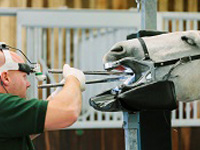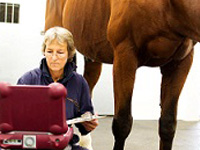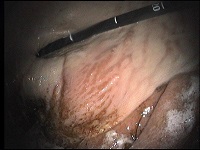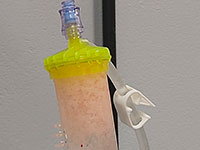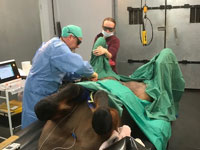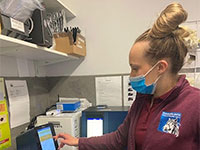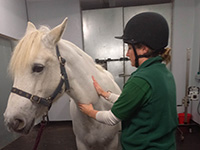In House Laboratory Tests
Blood Tests
Here at Summerleaze we have our own lab facilities to support our clients. In house we can run haematology and biochemistry from a set of bloods, enabling us to run samples the same day to help us treat and diagnose your horse as quickly as possible. These tests can help identify if your horse is suffering from a wide variety of conditions such as liver damage to anaemia.
We are also able to perform tests in house looking at a horse’s Total Protein and Packed Cell Volume from a simple blood test, these can then indicate multiple things such as the level of hydration in the horse or the level of blood loss.
We can also perform a wide range of lab tests at stable side varying from testing the antibody or IgG level of a foal to ensure they have had sufficient colostrum to monitoring the horse’s SAA, an inflammatory marker that helps guide the horse’s treatment regime.
Urine Analysis
We regularly perform urine analysis in house, identifying if there are any stones or cells present on microscopy and using a urine dipstick to identify the levels of the different components present such as if there is protein or blood. We then use a refractometer to identify if the urine is the appropriate level of dilution.
Reproductive Tests
In the practice we can look at endometrial swabs we have taken when a mare is in season and analyse whether a mare’s uterus is free from infection and as a result it is fine for that mare to be covered (some studs may require further testing at a different lab).
We can also analyse semen quality under microscopy in the practice. For any artificial insemination, the practice performs, the semen is scored on its morphology and progressive motility.
Dermatology Tests
We can use microscopy to look at hair plucks, tape tests, impression smears or skin scrapes we have taken for parasites and identify the cells that are present. This can help guide us on the required treatment for those horses with itchy or scaley skin.
Worm Egg Counts
We run worm egg counts in house on a daily basis. To try to reduce resistance to wormers we strongly advise all our clients undertake regular worm egg counts every 2-3 months and just worm as required and then once yearly for tapeworm and encysted worms. If you are planning on bringing samples into us please bring them in to us fresh in a clearly labelled sealed plastic glove, bag or jar. Preferably at the start of the day. The sample we use to measure is only a few grams so the sample you give us does not need to be large.
For those lab tests we don’t perform in the practice we work closely with other labs throughout the country, trying to ensure the best turnaround time and the optimum pricing for our clients.




